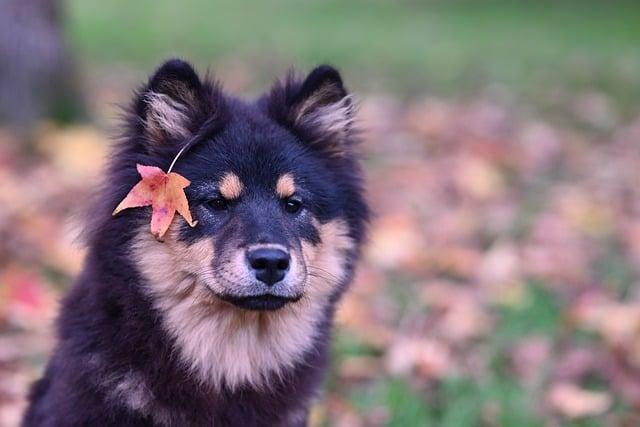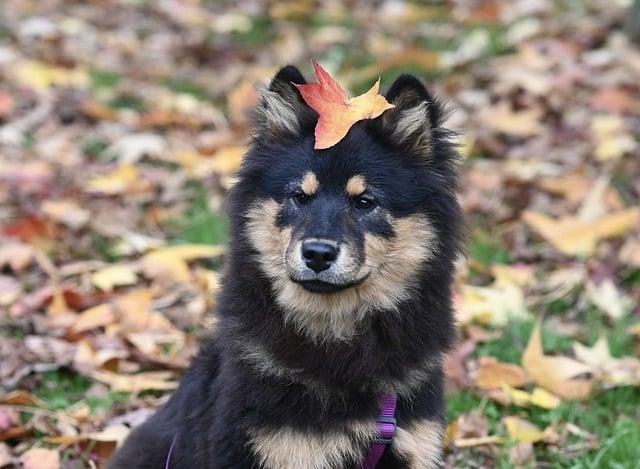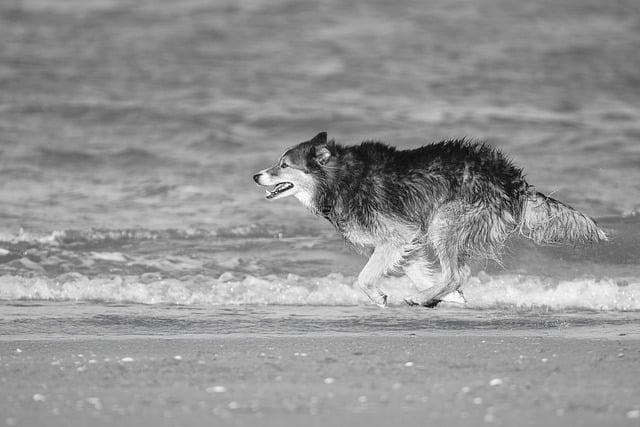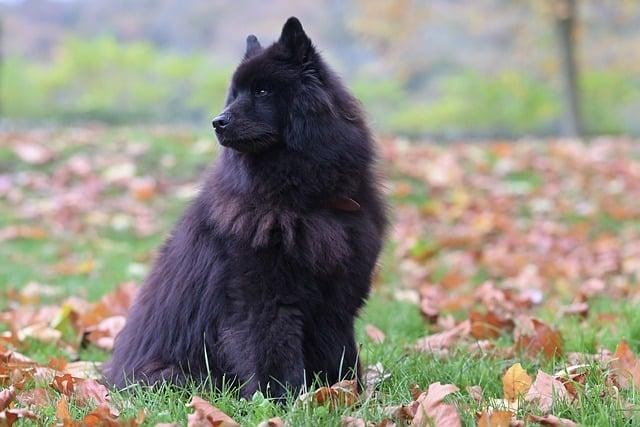Imagine a quiet evening at home when suddenly, you hear an unusual noise outside. Your heart races, but before you can react, your loyal dog, a natural protector, stands alert by your side. No training needed—just instinct. This is the essence of breeds like the German Shepherd or Rottweiler, known for their protective nature. They possess an innate ability to sense danger and act accordingly. Choosing a dog with this instinct not only brings companionship but also peace of mind, ensuring you’re safeguarded by a vigilant friend.
Contents
- Understanding Natural Protective Instincts in Dog Breeds
- Evaluating Temperament and Size for Optimal Protection
- Choosing the Right Breed for Your Lifestyle and Environment
- Building a Trusting Relationship with Your Protective Companion
- Q&A
Understanding Natural Protective Instincts in Dog Breeds
When considering a dog that can instinctively protect you without the need for extensive training, it’s essential to understand the natural protective instincts that certain breeds possess. These instincts are often rooted in the dog’s history, breeding, and temperament. Some breeds have been specifically developed for guarding and protection, making them more likely to exhibit protective behaviors naturally.
Among the breeds known for their innate protective qualities, you’ll find:
- German Shepherds: Renowned for their intelligence and loyalty, these dogs are often used in police and military roles due to their strong protective instincts.
- Rottweilers: With a confident demeanor and a natural guarding instinct, Rottweilers are fiercely loyal to their families and can be very protective of their home.
- Doberman Pinschers: Known for their alertness and agility, Dobermans are often seen as excellent protectors, combining loyalty with a strong instinct to defend.
- Belgian Malinois: Similar to the German Shepherd, this breed is highly trainable and possesses a strong protective instinct, making them ideal for protection work.
In addition to these breeds, there are others that may not be as commonly recognized but still possess strong protective instincts. Breeds such as Bullmastiffs and Akitas are known for their natural guarding abilities and can be incredibly loyal companions. These dogs often have a strong bond with their families, which enhances their protective nature. Their size and strength can also serve as a deterrent to potential threats.
It’s important to remember that while some breeds may have a predisposition to protect, individual temperament and socialization play crucial roles in a dog’s behavior. A dog’s environment, upbringing, and experiences will shape how their protective instincts manifest. Therefore, even within breeds known for their protective nature, there can be significant variation among individual dogs. Choosing the right breed for your lifestyle and ensuring proper socialization will help you find a loyal companion who can instinctively protect you and your loved ones.
Evaluating Temperament and Size for Optimal Protection
When considering a dog for protection, both temperament and size play crucial roles in ensuring safety and security. A dog’s natural instincts, combined with its physical attributes, can create a formidable guardian without the need for extensive training. Certain breeds are inherently more protective due to their history and genetic predisposition, making them ideal candidates for those seeking a reliable protector.
**Temperament** is a key factor in determining a dog’s ability to protect. Look for breeds that exhibit the following traits:
- **Loyalty**: A loyal dog will instinctively defend its family and territory.
- **Courage**: Fearlessness in the face of potential threats is essential for a protective dog.
- **Alertness**: A naturally vigilant dog will be quick to notice unusual activities or intruders.
- **Confidence**: Confident dogs are less likely to back down when confronted with danger.
In addition to temperament, **size** can significantly impact a dog’s protective capabilities. Larger breeds often have a physical presence that can deter potential threats. Consider the following aspects of size:
- **Intimidation Factor**: Bigger dogs can be more intimidating to intruders, often serving as a psychological barrier.
- **Strength**: Larger dogs typically possess greater strength, which can be advantageous in a confrontation.
- **Presence**: A substantial dog can cover more ground and respond quickly to threats, enhancing its protective abilities.
Ultimately, the combination of a dog’s temperament and size can create an effective protector that requires minimal training. By selecting a breed known for its protective instincts and physical prowess, you can ensure that your canine companion will instinctively safeguard your home and loved ones. This thoughtful approach to choosing a dog will provide peace of mind, knowing that you have a loyal guardian by your side.
Choosing the Right Breed for Your Lifestyle and Environment
When considering a canine companion that will naturally offer protection, it’s essential to align the breed with your lifestyle and environment. Certain breeds possess innate guarding instincts, making them more suited for protective roles without extensive training. For instance, breeds like the **German Shepherd**, **Rottweiler**, and **Doberman Pinscher** are known for their loyalty and protective nature, often forming strong bonds with their families. These dogs not only provide security but also thrive in active households where they can engage in physical activities.
Additionally, the size of your living space plays a crucial role in breed selection. Larger breeds may require more room to roam and exercise, while smaller breeds can adapt to apartment living. Breeds such as the **Bullmastiff** or **Boxer** can be excellent choices for those with larger homes, as they can comfortably patrol their territory. Conversely, if you live in a smaller space, consider breeds like the **Miniature Pinscher** or **Cairn Terrier**, which, despite their size, can be quite alert and protective.
Another factor to consider is your activity level. Some breeds are more energetic and require regular exercise to maintain their physical and mental health. For example, **Belgian Malinois** and **American Pit Bull Terriers** are high-energy dogs that excel in active environments and can be naturally protective when they feel secure and engaged. On the other hand, if your lifestyle is more laid-back, breeds like the **Shiba Inu** or **Chow Chow** can still provide a protective presence while being less demanding in terms of exercise.
Lastly, consider the climate and environment in which you live. Some breeds are better suited for specific weather conditions, which can impact their health and behavior. For instance, **Alaskan Malamutes** and **Siberian Huskies** thrive in colder climates, while **Basenjis** and **Chihuahuas** are more comfortable in warmer environments. Choosing a breed that aligns with your local climate will ensure that your dog remains healthy and happy, enhancing their natural protective instincts.
Building a Trusting Relationship with Your Protective Companion
Establishing a strong bond with your canine companion is essential for fostering a protective environment. Dogs are inherently social animals, and their loyalty often stems from the trust they feel towards their owners. To cultivate this trust, it’s crucial to engage in activities that promote mutual understanding and respect. Spend quality time together, whether through play, walks, or simply relaxing at home. This not only strengthens your relationship but also reinforces your role as a leader in their eyes.
Communication plays a pivotal role in building this connection. Dogs are incredibly perceptive and can pick up on your emotions and body language. Use positive reinforcement techniques to encourage desired behaviors, and be consistent with your commands. This clarity will help your dog understand what is expected of them, reducing anxiety and fostering a sense of security. Remember, a confident dog is more likely to act protectively when they sense a threat.
Socialization is another key factor in developing a trusting relationship. Expose your dog to various environments, people, and other animals to help them become well-rounded and confident. This exposure not only enhances their protective instincts but also ensures they can differentiate between genuine threats and harmless situations. A well-socialized dog is less likely to react fearfully, making them more reliable guardians for you and your family.
ensure that your dog feels safe and secure in their environment. Create a comfortable space where they can retreat when feeling overwhelmed. This sanctuary will help them relax and build confidence, which is essential for their protective instincts to flourish. By nurturing this safe haven and providing consistent love and support, you will cultivate a loyal companion who instinctively watches over you, ready to protect without the need for extensive training.
Q&A
-
What breeds are naturally protective without training?
Some dog breeds are known for their innate protective instincts. These include:
- German Shepherds
- Rottweilers
- Doberman Pinschers
- Boxers
- Belgian Malinois
These breeds often possess a strong guarding instinct and will naturally protect their families.
-
How do these dogs know when to protect?
Dogs have an exceptional ability to read body language and sense emotions. They can detect changes in their owner’s demeanor or unfamiliar situations, prompting them to act protectively. Their instincts kick in, making them vigilant and ready to defend their territory and loved ones.
-
Are protective dogs safe around children?
Yes, many protective breeds can be safe around children when properly socialized. It’s essential to introduce the dog to children gradually and supervise interactions. A well-socialized protective dog can be both a loving companion and a reliable guardian.
-
Do protective dogs require any special care?
While these dogs have natural protective instincts, they still require proper care, including:
- Regular exercise
- Socialization with various people and environments
- Consistent veterinary care
- Positive reinforcement training
Providing these essentials ensures that your protective dog remains balanced and well-adjusted.
choosing a dog breed known for its protective instincts can provide peace of mind without extensive training. By selecting a loyal guardian, you ensure safety and companionship, making your home a secure haven for you and your loved ones.




